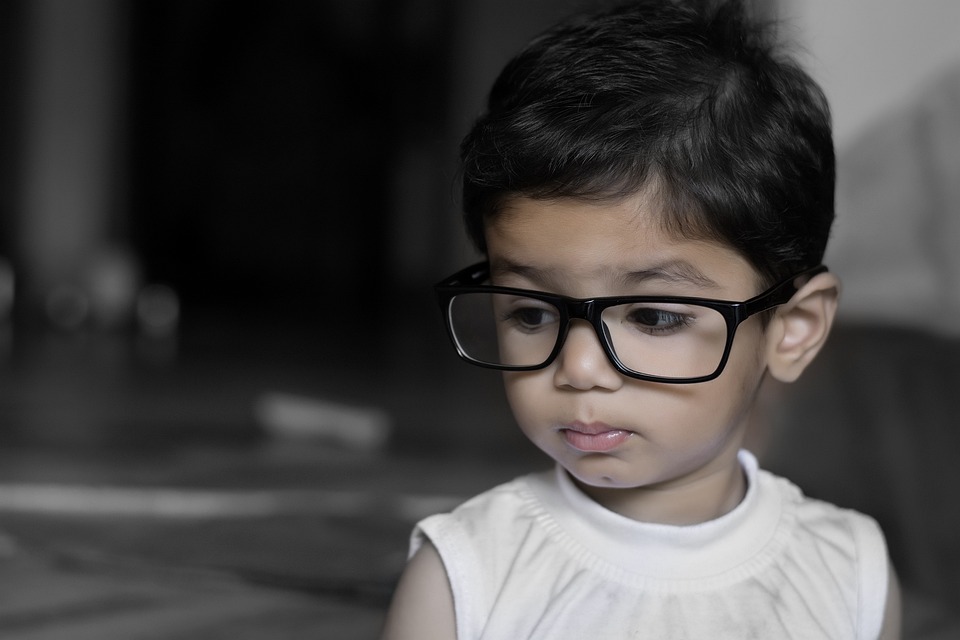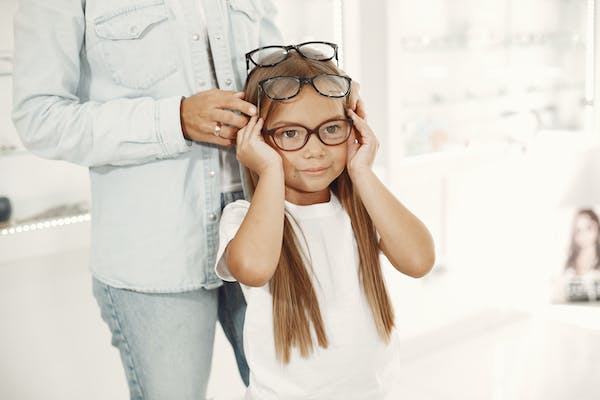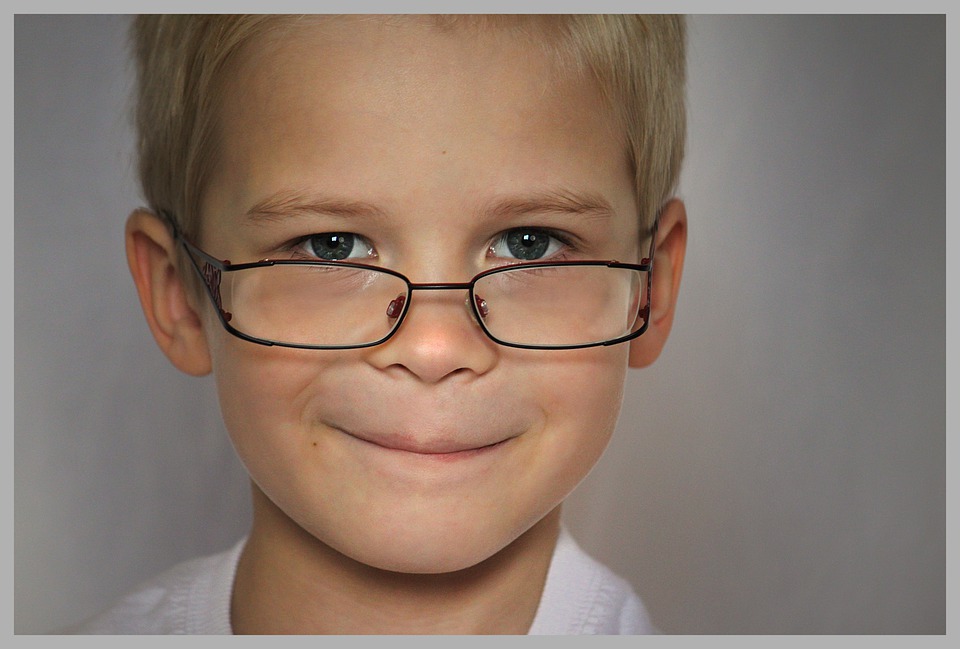Have you Heard of Amblyopia? Here is how to avoid it
Greetings to all and sundry,
It is a beautiful weekend, the weather has been fantastic and I am easing into the end of the week and the start of the next, the month of love is surely being good to us and it is my fervent hope that we all continue to experience it in that way.

I hope you are doing well though and having a great time with family and friends? Well, as I am here then you could tell that I am here to talk about health, our eyes in particular and today's topic promises to be an interesting one and so I hope you stay with me and continue the read.
Introduction
During the early stages of ocular development, a lot of things happen and some of these things are so crucial that when things go wrong we tend to pay for them throughout our life. From the time a child is born till about 10 years, the child grows rapidly, learns a whole lot, adjusts, and also adapts. The kind of information we feed the eye and the brain regarding sight is very very important within this time frame.

Tabula Rasa as a social scientist like to say in some way applies here as the brain only learns the information we feed it. After it learns, well it can relearn later on in life (a process or phenomenon known as plasticity) however it is quite difficult and the results we tend to look for hardly happens, and the prognosis tends to get worse as we grow older.
And so it becomes very important that we ensure our kids have the needed eye care within these early stages of life. Congenital conditions such as congenital glaucoma, congenital cataract, and the like must be taken care of with all seriousness and the needed care applied within the shortest possible time. Failure to do these may result in what we are coming to discuss today, a condition or better still a situation known as Amblyopia. And so at this juncture, one may ask, what is this Amplyopia you are talking about?
Amblyopia
Amblyopia is a situation in eyecare where the eye or eyes fail to see as they ought to without any present underlying conditions, anatomical or physiological defect. This is attributed to the fact that whiles impulses may be going to the brain, the brain is failing to interpret it as it ought to because it is not used to it or we can say does not understand it.

Let's use this scenario to grasp the concept. And so in our everyday lives, waves move around us, the waves are in a spectrum, we even have ultraviolet rays which are from the sun, radio stations have their own waves with which they sent their transmissions and in the same vein tv stations have their own. These media use different routes and different frequencies and even among the radio or tv stations they tend to differ in their own way.
This is how the impulses work in the body or the eye and the brain as well. Now, if you bring out a radio and put it in front of tv waves and expect it to catch the waves and interpret and give you video or graphics results it would work, it can't happen because it cannot even receive to even interpret the message and even if it does it wouldn't be able to comprehend or give the necessary results. This is what happens in amblyopia.
And so when the retinal layers sort out the impulses and sent them to the brain, the brain picks them and interprets them based on what it knows or has learned over the years and in the end gives you a result or feedback which are you see the object is big, black, round, etc. I hope you are getting how Amblyopia works about our vision now. And so in amblyopia, these impulses simply do not yield the needed results although they go into the eye and the eye can receive them.
Now, why does this happen? Well as I said in the introduction, the sensitive period as we call it technically thus from birth to about 10 years is the time the brain learns to interpret these impulses and give the right results. When something obstructs or affects this process, the brain learns wrongly and after this period things start to get difficult. And so when a child cannot really see as he ought to see because he or she has a refractive error which requires that he or she wears glasses and the mother or dad denies him or her, the brain gets used to the blurred images as the norm.
And so this child grows up, and later goes for an eye consult, the Optometrist does a refraction for him or her, and yet the results are not yielding, why? Because the brain cannot process what is coming now, this should have been done earlier. In some kids, this comes about because one of the eyes deviates and so it doesn't get the impulses well, as he or she grows the system focuses more on the good eye neglecting the deviated eye, and then later when he or she grows and we want to get things right, the eye refuses to see.

Amblyopia could be mild, moderate, or severe and in the severe cases, one could literally be blind and not able to see at all because the eye couldn't receive impulses within the early stages of his or her life due to complete obstruction of the ocular media, perhaps due to congenital cataract or cornea scar or opacities and so later when this is correct the brain does not know what those impulses are and simply cannot get it. And so although everything may look ok and fine with the eye, the person would continue to remain blind throughout their entire life.
As usual, I wish to remind you, dear reader, that I do not seek to scare you or cause you to panic however, we must know that these early stages of child development are extremely important and that whatever we feed them visually and even intellectually would go a long way to have a lifetime impact on their lives. Have your child's eye screen as early as possible and ensure that you do not take the reviews for granted, you child you thank you later.
Conclusion
The eye is one of the most simple and yet complicated organs in the body, it is small and yet pretty, take your ocular health serious, protect it now so you do not find yourself wanting later on in life and be sure to seek professional consult always, when in doubt please ask do not go ahead to do things on your own.

Kindly avoid on-the-counter medication without a thorough eye examination and a prescription from your Optometrist or Ophthalmologist, remember that the purpose of my writeups is not so you could diagnoses and treat yourself but to enlighten you and also make things easier for you as a patient and as a primary healthcare provider. It is a pleasure to be able to serve you again, today, thank you for your time and for reading.
Further Reading
DeSantis D. (2014). Amblyopia. Pediatric clinics of North America, 61(3), 505–518. https://doi.org/10.1016/j.pcl.2014.03.006.
McConaghy, J. R., & McGuirk, R. (2019). Amblyopia: Detection and Treatment. American family physicianNeuroscience45–750..
Holmes, J. M., & Levi, D. M. (2018). Treatment of amblyopia as a function of age. Visual Neuroscience, 35, E015. https://doi.org/10.1017/S0952523817000220.
Birch E. E. (2013). Amblyopia and binocular vision. Progress in retinal and eye research, 33, 67–84. https://doi.org/10.1016/j.preteyeres.2012.11.001
Thanks for your contribution to the STEMsocial community. Feel free to join us on discord to get to know the rest of us!
Please consider delegating to the @stemsocial account (85% of the curation rewards are returned).
Thanks for including @stemsocial as a beneficiary, which gives you stronger support.